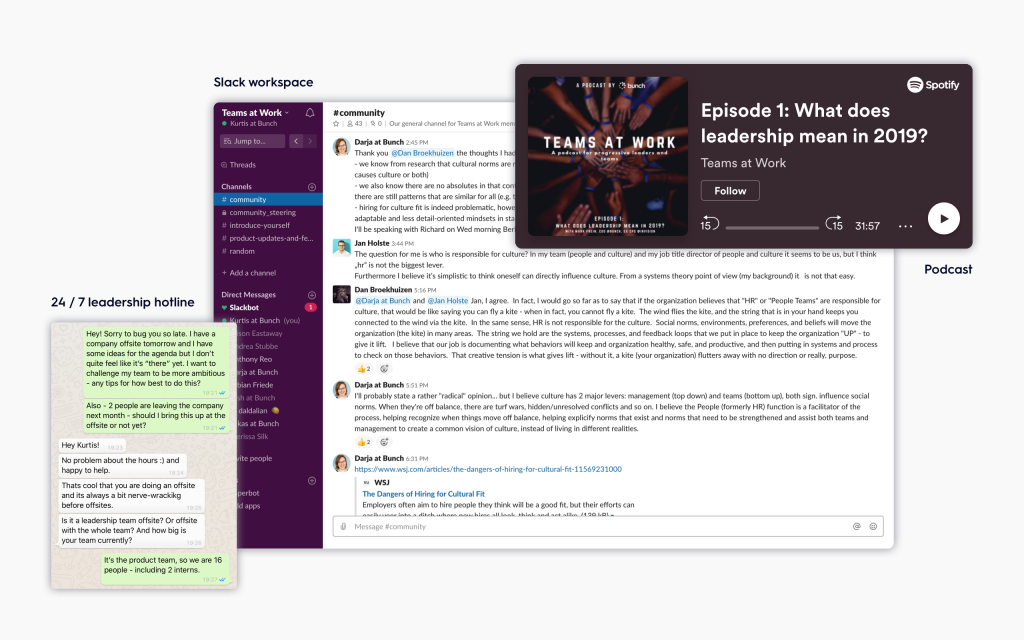Five years ago, I was a burned-out founder of a startup. I was searching for something new to get excited about, but still recovering from a difficult period of moonlighting my startup while still maintaining a high-pressure day job with a high-growth company.
One night at dinner, a friend asked me for help in finding the right people for his startup and how he thought that the mindset of people mattered more than their current skills. I had studied psychology, researched organizational behavior and had helped leaders at BMW, Rocket Internet and other companies to develop unique working environments that helped their talent succeed and was known for giving good advice amongst my friends – many of whom were founders of startups.
I told my friend to make a list of behaviors of the most successful people that he worked with and helped him figure out how to look for those in candidate interviews and how to encourage his current team to see value on building good habits around these behaviors.
The conversation got me thinking: what really drives performance in teams? Why do some teams work so damn well, while others struggle despite having all the right hard skills? I was overwhelmed by curiosity. Using Google Scholar and my PhD student access to electronic library, I started scouring for the latest research on the topic – I read over 300 academic papers, and started compiling a master list of all the factors that make teams work. I started meeting with founders as well to talk about it and give them helpful guidance.
With all the insights I had found, I felt like I was onto something. I felt like the understanding I’d gained on what drives and hinders team performance could change everything for other leaders, and I realized that all the information you need to make it happen was in plain sight if you only knew where to look.
At the same time, I noticed that most managers have a constant feeling of being overwhelmed, ill-equipped and at the same time are expected to deliver value to their teams from day 1. The average tenure of a Silicon Valley exec is around 13 months, during that time some individuals are supposed to land, rebuild the team, build trust and relationships, inspire people to grow and push those results that they’re paid to deliver. Most leaders and founders I met are thinking about their teams and how to be better at their jobs the majority of their days and many of their nights. Every 1/1 that’s tough is keeping every decent leader awake at night. I desperately wanted to help.
This is the passion and energy that Bunch was born from. I wanted to help people build great teams which first starts with understanding how people work, how to build trust faster, how to create better and more inclusive environments in which people can feel like they can conquer the world and ultimately do so, even if that means something very, very different for every individual.
It’s why we assembled this team and built the Bunch Assessment – a 3-minute survey to understand team culture. It’s why we built Emma, an AI that helped managers get to know candidates better based on a bit of psychology and a LinkedIn profile. It’s why we’re building our Team Analytics Platform that gives leaders constant feedback about their team’s communication on Slack to help build healthy cultures, reduce misunderstandings, and collaborate more effectively.
Throughout this journey, there’s a persistent thought that’s always stuck with me though: there’s still something special about that dinner experience: a few trusted founders sharing knowledge, challenges, and best practices. I still organize events within my own network to do this. When I struggle, I call 2–3 other founders, advisors, experienced peers or just friends and colleagues for advice, sanity check, and ideas. In return many founders and leaders I know call or WhatsApp me, when they need support. Most of the time, their challenges are around understanding what’s happening. Once that’s clear, the ideas on how to resolve fall into place.
I’ve been wondering lately: how can we “scale” that feeling? Beyond all of the technology products we’re building, how can we bring people together and give them that feeling of safety and support amongst peers and experts?
That’s why I’m excited to announce something new: we’ve teamed up with M13 – and specifically partner Karl Alomar – to build this vision of combining our analytics stack with expertise and a personal touch. We’re so grateful to Karl and the M13 team for investing in our vision and for their tremendous partnership.

Today, we’re launching our new digital hub for founders, leaders and managers called Teams at Work. It’s a place for leaders to learn better, faster and become more equipped to build stronger, better and even more kick-ass teams. But it’s more than a collection of like-minded people. It’s a place of aspiration and innovation, and a place to turn when you feel lost and need some clarity.

Today, Teams at Work consists of a shared Slack workspace, a WhatsApp-based emergency line, and weekly insights briefings. We’re even organizing a few dinners based on the ones that inspired me so much a few years ago.
Find it here on Product Hunt to try it out!




